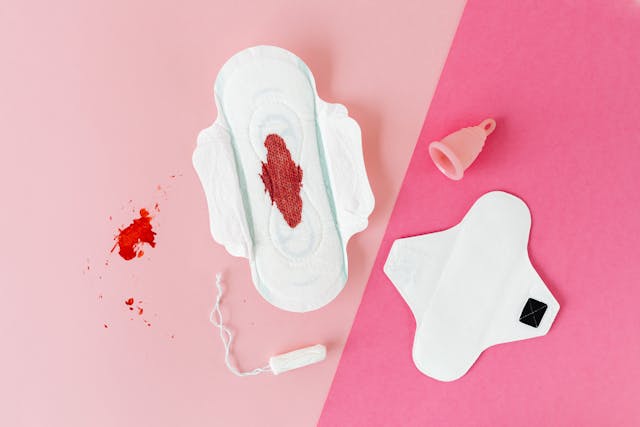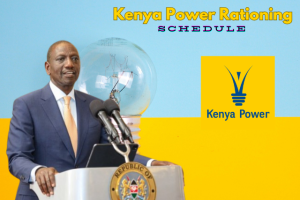
Menstrual Cycle
The menstrual cycle is a natural process that prepares a woman’s body for pregnancy and involves several emotional and physical changes.
It consists of four main phases: the menstrual phase, follicular phase, ovulation, and luteal phase. Each phase is regulated by hormones, which not only affect your body but also your mood and emotions.
In this article, we will explore the four phases of the menstrual cycle, what happens in each stage, and the emotional changes that may accompany them.
What is the Menstrual Cycle?
The menstrual cycle is typically 21 to 35 days long, with an average length of 28 days. This cycle is controlled by fluctuations in hormones like estrogen, progesterone, luteinizing hormone (LH), and follicle-stimulating hormone (FSH).
These hormones prepare the body for pregnancy and trigger different emotional responses during each phase.
The Menstrual Phase
Duration: Usually lasts 3 to 7 days, beginning on the first day of bleeding.
The menstrual phase is the start of the cycle, when the uterus sheds its lining, resulting in menstrual bleeding. This occurs because the egg from the previous cycle was not fertilized, and the body no longer needs the thickened uterine lining.
Hormone levels, especially estrogen and progesterone, are at their lowest during this phase. These hormonal dips can affect emotions, leading to feelings of fatigue, irritability, and even sadness. Many women experience a drop in energy, which can contribute to a sense of emotional sluggishness. Some may also feel more introspective during this time.
Emotional changes during the menstrual phase:
- Fatigue and low energy
- Irritability and mood swings
- A sense of being more emotional or reflective
- Potential feelings of sadness or low mood
The Follicular Phase
Duration: From the first day of menstruation until ovulation, typically 14 days.
The follicular phase begins on the first day of your period and continues until ovulation. During this phase, the pituitary gland releases follicle-stimulating hormone (FSH), stimulating the ovaries to produce follicles.
One of these follicles will eventually mature into an egg. As the follicles develop, the body produces more estrogen, which thickens the uterine lining and prepares it for a possible pregnancy.
As estrogen levels rise, many women feel a significant boost in mood and energy. This is often referred to as the phase where women feel more optimistic, motivated, and creative.
You may also notice clearer skin, improved cognitive function, and a general sense of well-being.
Emotional changes during the follicular phase:
- Increased energy and motivation
- Enhanced feelings of happiness and optimism
- Greater focus and mental clarity
- A sense of being more social and outgoing
Ovulation
Duration: Typically occurs around day 14 in a 28-day cycle but can vary.
Ovulation is the phase where a mature egg is released from the dominant follicle in the ovary. This process is triggered by a surge in luteinizing hormone (LH), and it is the time when you are most fertile. The egg will travel down the fallopian tube, waiting to be fertilized.
Estrogen levels peak during ovulation, and many women experience heightened emotions, particularly related to confidence and sexuality.
You may feel more attractive and desirable during this time, with an increased interest in intimacy. This phase is often associated with high self-esteem, making it an excellent time for socializing and taking on challenges.
Emotional changes during ovulation:
- Increased confidence and self-esteem
- Heightened feelings of attraction and sexual desire
- A strong sense of energy and enthusiasm
- A desire for social interactions and connection
The Luteal Phase
Duration: From day 15 to day 28, lasting about 14 days.
The luteal phase begins after ovulation and lasts until the start of the next period. After the egg is released, the empty follicle becomes the corpus luteum, which produces progesterone.
Progesterone helps prepare the uterine lining for implantation, should fertilization occur. If the egg is not fertilized, hormone levels drop, leading to the onset of the next menstrual cycle.
During the luteal phase, many women experience symptoms of Premenstrual Syndrome (PMS) due to the decline in progesterone and estrogen.
These symptoms can include irritability, mood swings, fatigue, and anxiety. Some women may feel emotional sensitivity or sadness during this time, along with physical symptoms like bloating and breast tenderness.
Emotional changes during the luteal phase:
- Increased irritability and moodiness
- Feelings of anxiety or stress
- Greater sensitivity to emotional triggers
- A tendency to feel low or overwhelmed
- Symptoms of PMS such as tension and mood swings
Why Tracking Your Emotions is Important
Understanding the emotional fluctuations that occur during your menstrual cycle can help you better manage your mental health and well-being. By recognizing how your body and emotions change in each phase, you can:
- Plan your activities and social events during phases when you feel more energetic and confident.
- Prepare for emotional dips during the menstrual or luteal phases and take steps to improve self-care.
- Identify patterns in mood changes, which can help you recognize if something is off or requires medical attention.
Read Also: How to Remove Pimples Naturally
In Summary
The menstrual cycle not only affects the body but also influences emotions, energy levels, and mood. By understanding the phases; menstrual, follicular, ovulation, and luteal; and the emotional changes that come with each.
Hence, women can take control of their reproductive health, plan their activities, and manage their emotions more effectively. Whether you’re experiencing the introspective days of menstruation or the energetic highs of ovulation, tracking your cycle can help you better navigate the emotional ups and downs.






